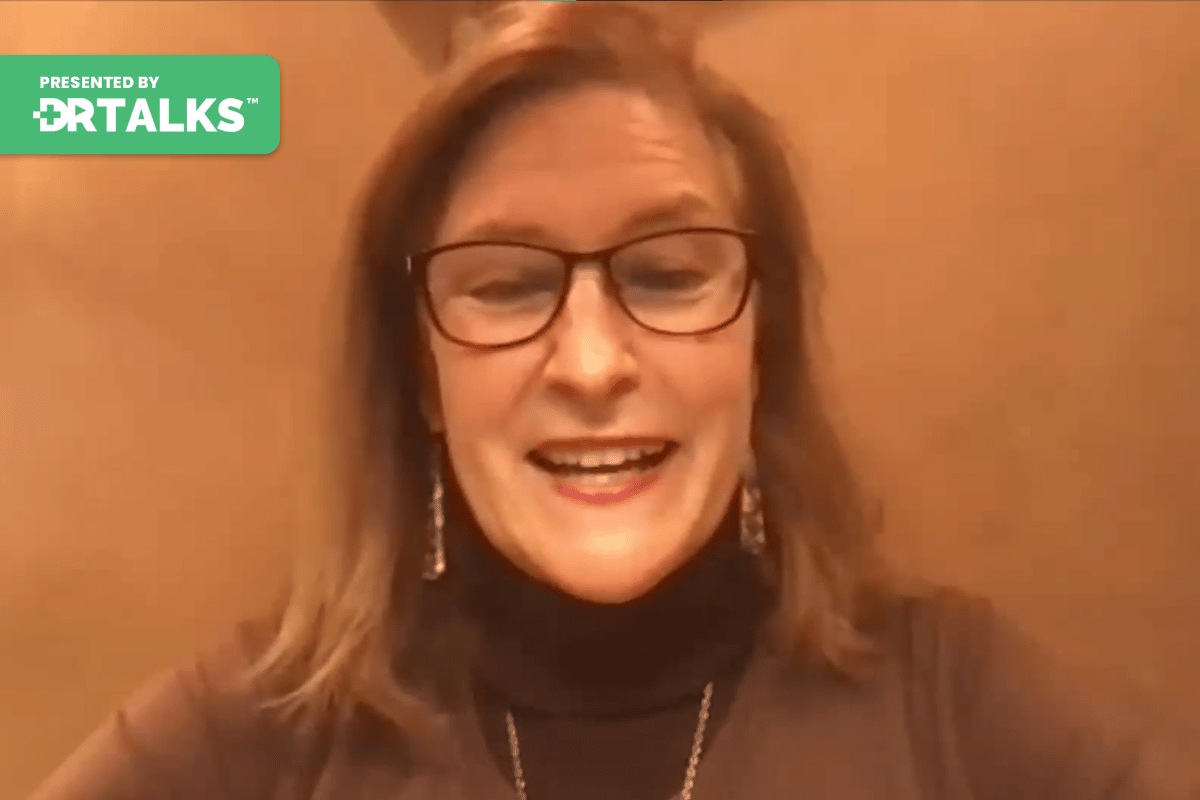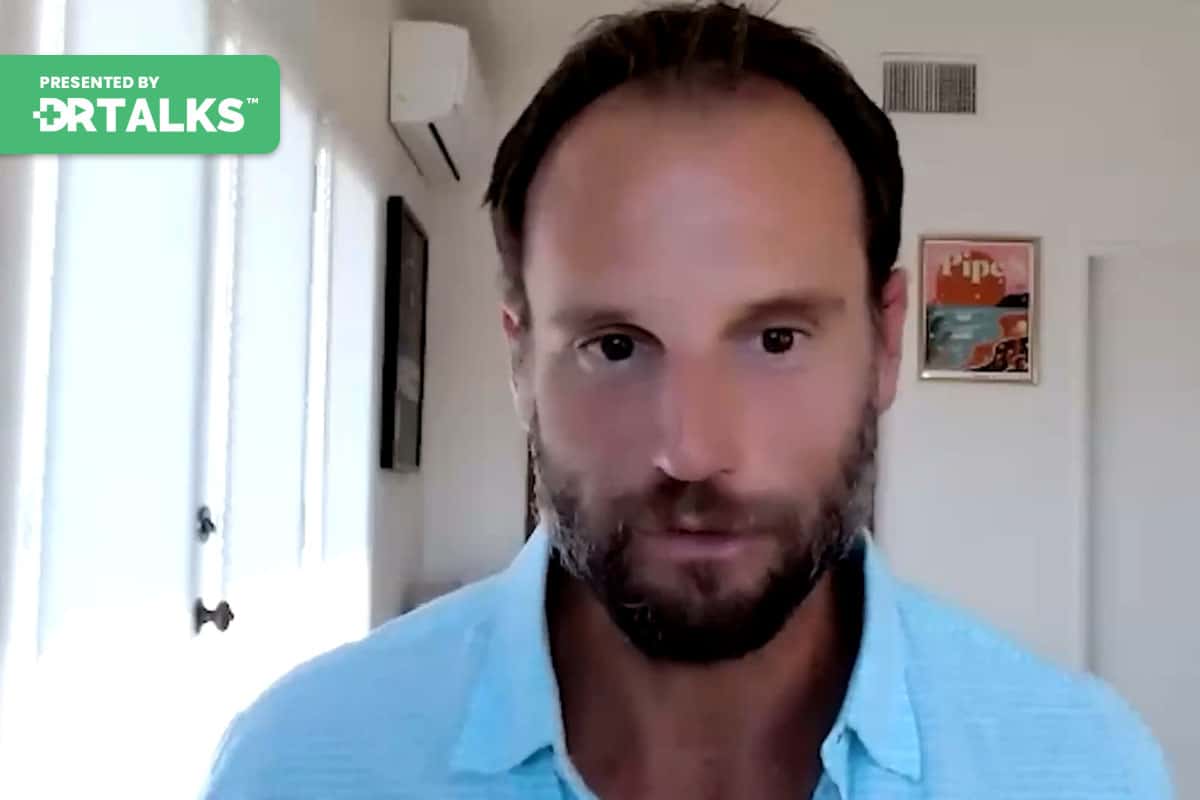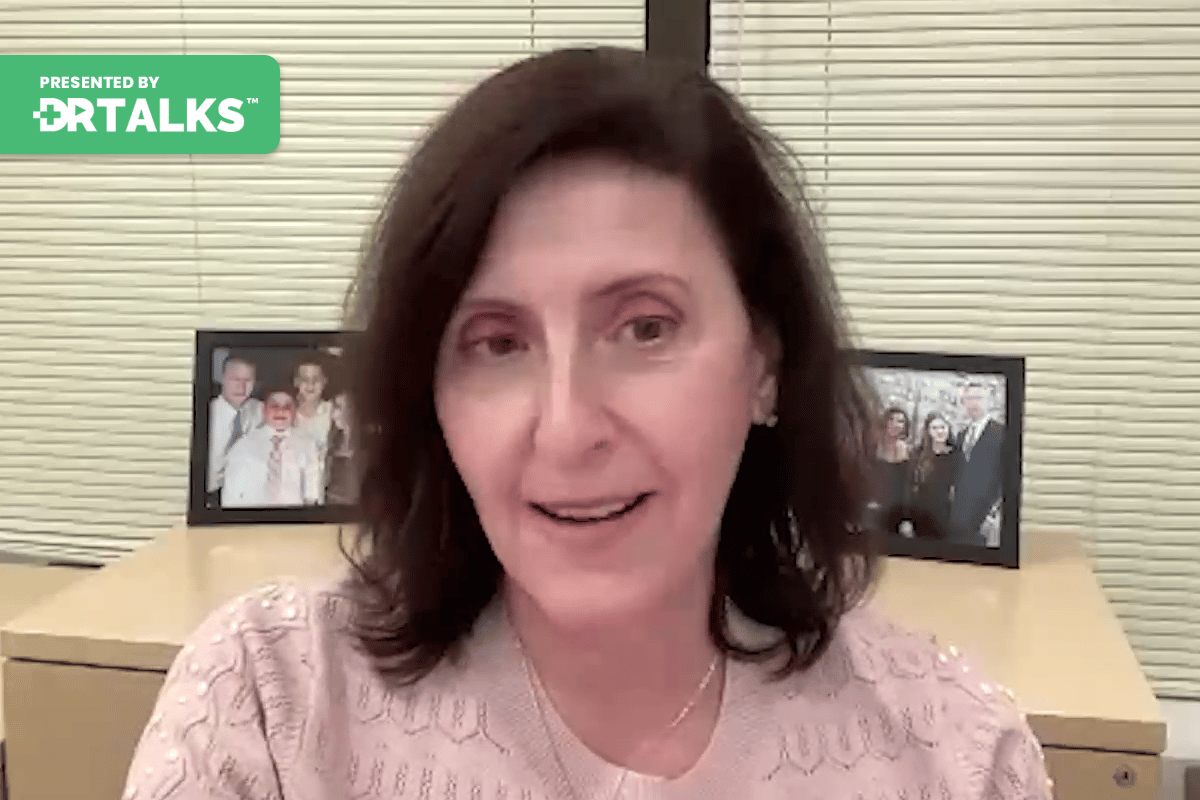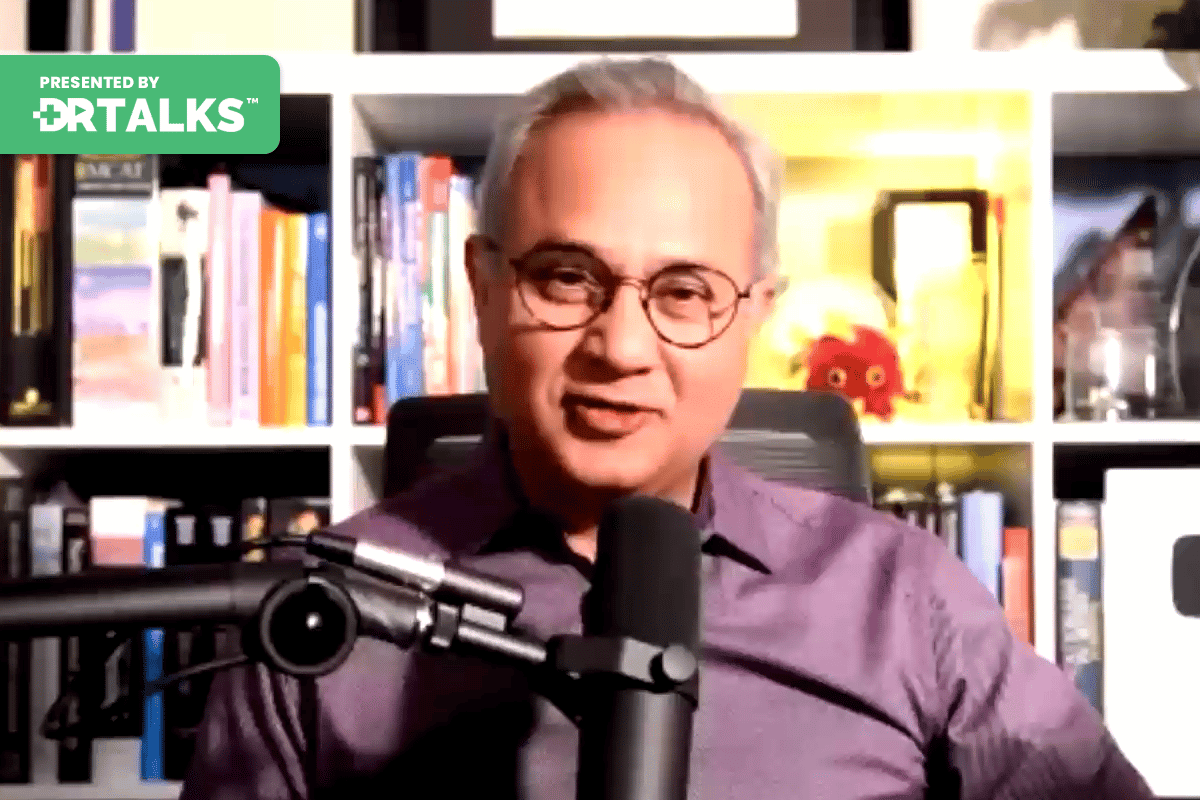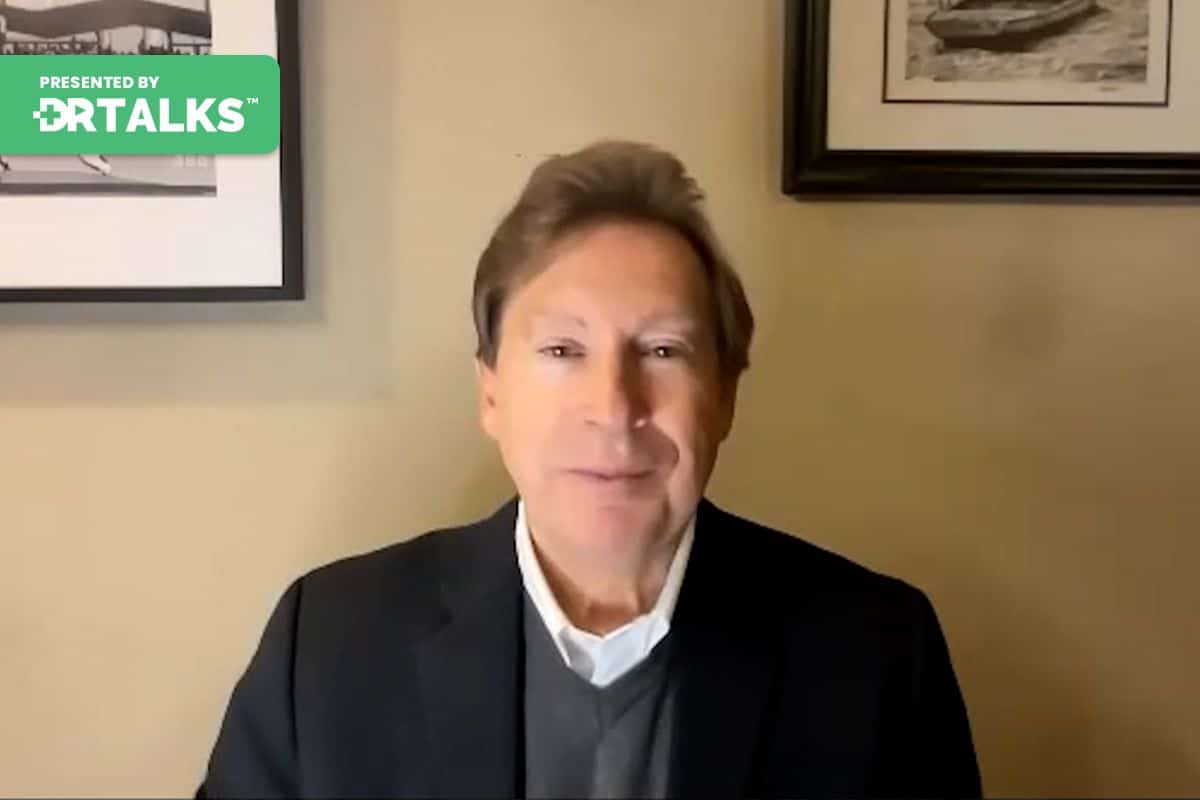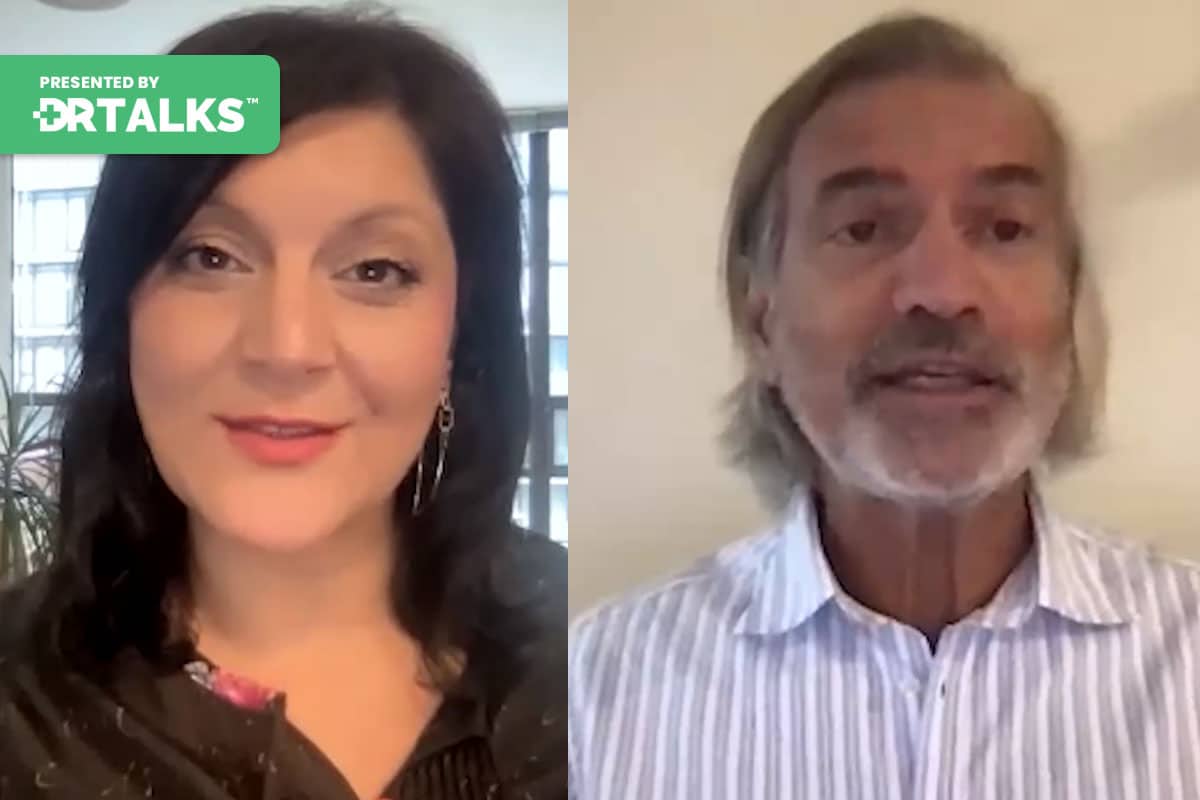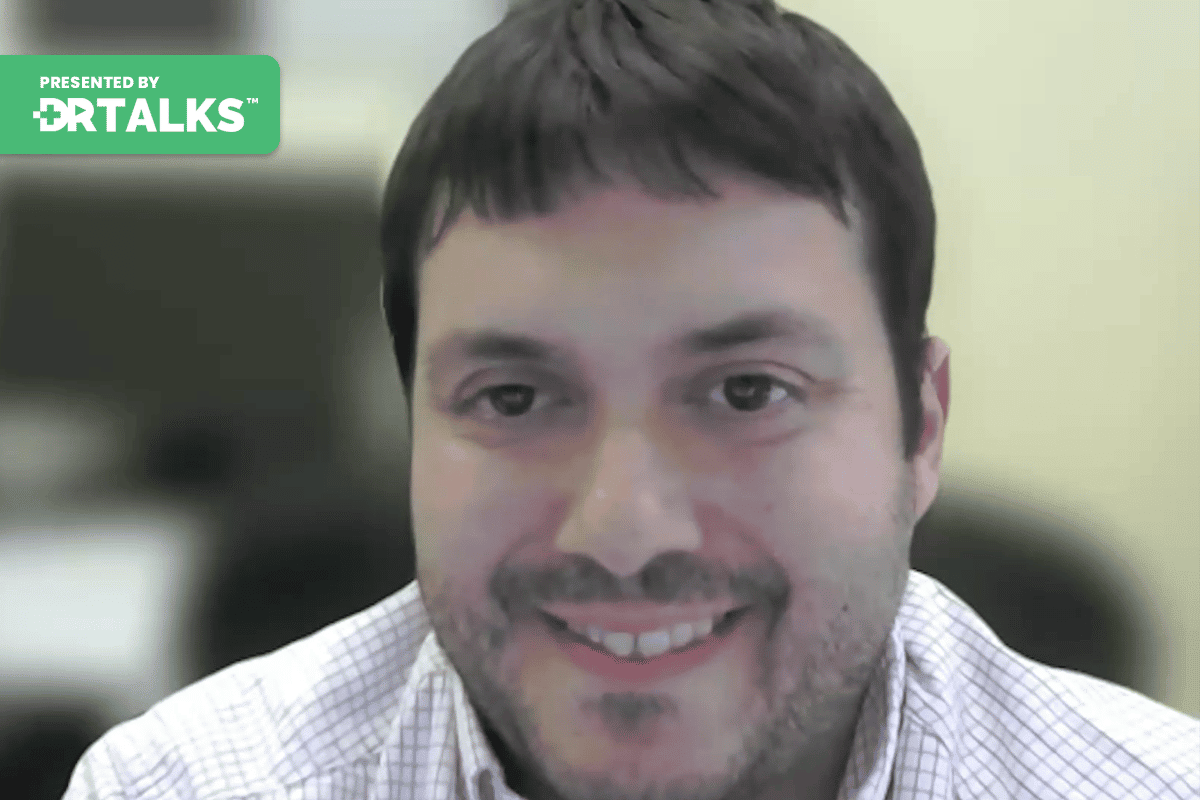Join the discussion below
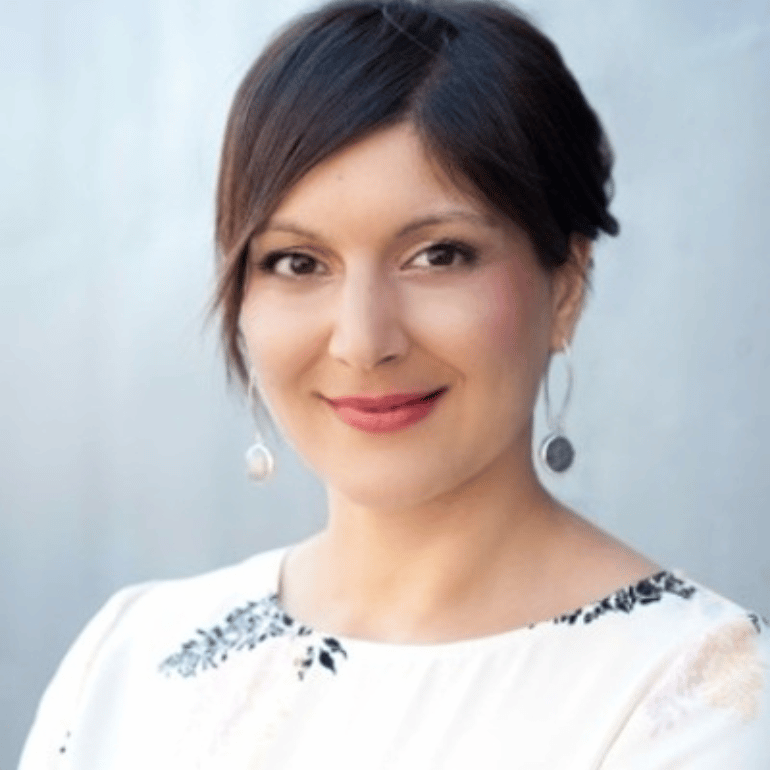
Nafysa Parpia, ND has an independent practice at Gordon Medical associates, specializing in the treatment of Lyme disease and other complex chronic illnesses such as autoimmunity, mold toxicity, fibromyalgia, environmental toxicity and gastrointestinal disorders. Her patients with chronic Lyme Disease are typically those who either do not do well with antibiotics, or prefer... Read More
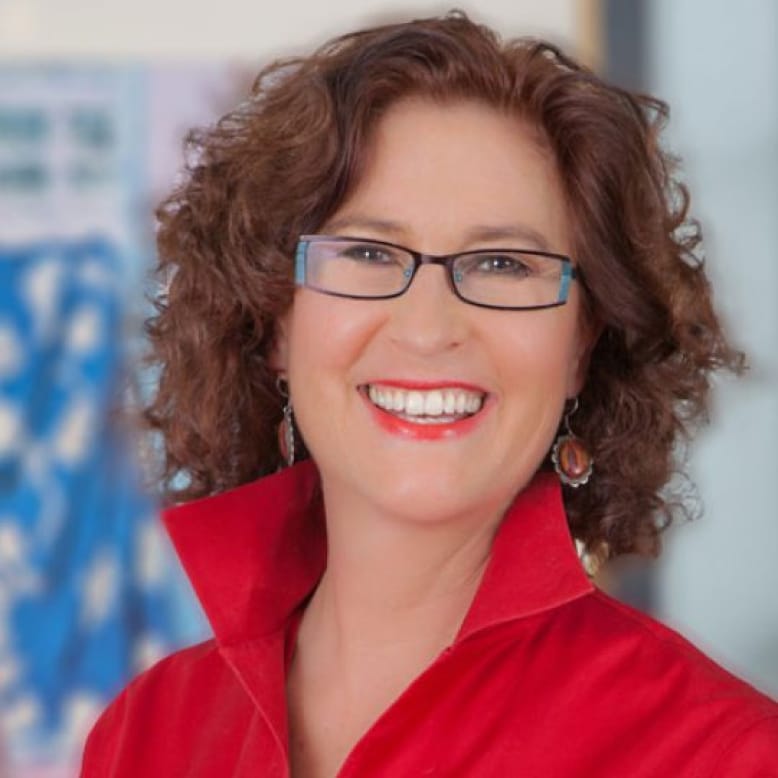
An Institute for Functional Medicine faculty member for 14 years, Dr. Christensen first became interested in functional medicine 20 years ago when trying to solve the riddle of her and her family’s complex health challenges -- unbeknownst to her at the time they were consequences of severe toxic mold exposure.... Read More
- The contributing factors of anxiety, depression, and collective trauma to long haul and chronic fatigue
- Calming the traumatized nervous system
- Chronic fatigue and mitochondrial health
Nafysa Parpia, ND
Welcome to this episode of the long haul chronic fatigue summit. I’m very excited to have with me today, my friend and colleague Dr. Margaret Christensen. This is going to be a very interesting conversation. Dr. Margaret is going to talk about the role of trauma in the long haul and how to heal it. Dr. Margaret, will you introduce yourself to our audience?
Margaret Christensen, MD
Sure. Sure. Margaret Christensen, I am the founder, one of the co founders of Carpathia collaborative, which is in Dallas. I’ve been doing in the I’ve been in the functional medicine realm for the past 22 years. And even before that I was an O. B. G. Y. N. and I, you know, I already did integrated obstetrics and worked with midwives and out of hospital births and that kind of thing. So have always had a big, profound belief in the body’s ability to heal itself and to do its normal functions. And I got sick myself 22 years ago, could not get better with how I was trained. My Children were also sick to them now as adults have continued to be incredibly sick and in that process of trying to heal myself, which I did you know, found out I had a lot of environmental toxicity mold poisoning in particular, but also trauma also played a role in perpetuating a lot of my symptoms and it’s an area that we deal with a lot it at Carpathia when we’re working with any client with chronic illness of any sort.
Nafysa Parpia, ND
Great, well, thank you for that. Let’s dive right in and talk about the role of trauma in this, global trauma that we’ve all been in through this pandemic start by telling us what are some of the important emotional and psychological effects of dealing with long haul.
Margaret Christensen, MD
Well with any type of chronic illness. Oftentimes again, you don’t feel good, you have such bad energy that you can’t get up and do the things that you wanted to do in the past. You may feel bad that you can’t take your kids or you know, be the type of spouse that you want to be or you may have trouble at work and that and so all that can exacerbate anxiety and depression um symptoms and just and there’s a part of the brain that I’m not sure if anybody has talked about it before on this particular summer, that’s called the limbic system. And our limbic system is the reptile part of the reptile part of our brain that runs all of our systems unconsciously. So what happens when you are chronically ill, chronically stressed, chronically distressed, um your limbic brain gets turned on that’s running constantly fight or flight all the time and it’s what’s controlling all of your body’s responses. And so that often keeps you in a state of chronic anxiety and PTSD. So what we are seeing with C0V!D is this massive global anxiety that was been promoted and also because of things like masking and mandatory shutdowns and isolation. All of those things can also very strongly impact our limbic system and our brains and our thoughts and can exacerbate any type of underlying emotional distress that you might be having.
Nafysa Parpia, ND
Thank you. So now Dr. Margaret, nobody has spoken about the limbic system here so feel free to just explain that.
Margaret Christensen, MD
Sure yeah I think this is this is so important because understanding how fear triggers our limbic brains and keeps our bodies in a state of dis regulation is really important because there’s there are some simple steps that we can take that can help move ourselves out of limbic system dysfunction or impairment as anti hopper calls it and into into using the calmer parts of our brain. So the limbic system is the part of the brain again that we call the reptile brain. This is the part of the brain that runs everybody system in the body unconsciously. So you know we don’t think about breathing, we don’t think about our heart beating, we don’t think about our eyes blinking that’s all just happening. And so the limbic system is there’s three major components to it. The hypothalamus that’s the part that again receives all the signals from the body and then sends signals to the pituitary gland and other parts of the body to say yes it’s okay.
It’s time to sleep, it’s time to get up, it’s time to eat, it’s time to reproduce. It’s time for our bowels to move. That is all being governed by the hypothalamus and inputs into that. So that’s part of the limbic system. The other part of the limbic system, there’s three major parts I’m going to talk about, is an oversimplification but it’s it does for the explanation here. The other part of the system is called the hippocampus and the hippocampus is our memory center. And so and because we have a bias towards negative emotions from an evolutionary standpoint, we remember trauma and bad things happening more than the good stuff that that tends to be. Kind of a one of the things that that helped keep us alive, you know, back, back when when we were cave been, you know tiger was chasing us was to remember, okay if we see the grass moving, that might be a tiger. So we better run. But what if the gas grass is moving? It’s just a mouse? You know but our hypothalamus, I mean the hippocampus says, oh I’ve seen that before smells also are a huge piece of the hippocampus when we smell things and we have memories.
So that’s the memory center of the brain that holds onto negative emotions and remembers oftentimes dangerous things or traumatic things more than it tends to remember, The good stuff. And so that’s so now we have the hypothalamus running all the systems and the hippocampus, remembering maybe that smell is not so good for us or that that whatever that particular food. And then the other part of the limbic system is called the amygdala. And the amygdala is what’s constantly scanning the environment and look, you know, is that tiger gonna jump out from the grass? And the amygdala sends the signals down to your adrenal glands to say, hey runner, fight, you know, fight flight or freeze. So the hypothalamus, the amygdala and the hippocampus are all part of the limbic part of the brain which is kind of deepen in the brain and the brain stem that regulates all of our bodies function unconsciously when it gets triggered, it’s running you all the time. And unless you are aware of that, you can be in a chronic state of anxiety and or depression and PTSD that is part of what keeps it fueling so that that’s a very little primer in the limbic system and but it’s unconscious. So if we can learn how to move out of the unconscious limbic system and into the conscious prefrontal cortex into the thinking, executive function part of our brain oftentimes that can help diminish all the different impacts in our body’s physiology from the limbic system.
Nafysa Parpia, ND
So all the traumas that each of us have been recently as a whole in society, I think that’s really been, it’s got impact on our brain. It’s impacted the limbic system.
Margaret Christensen, MD
Yeah. You know, this is this is huge. And again, the limbic system keeps us in fight or flight. And you can’t heal, you can’t repair when your body is is thinking it’s gonna run away from that tiger. It’s not gonna be using your resources to repair yourself. And that there’s a fight flight or freeze. The freeze response is the depression piece that I can’t even get up and move. I’m it’s it’s hopeless. I’m just whatever I can’t I can’t keep going. So, you know, I think that the impact of trauma in this whole thing has not been discussed well enough. The trauma of isolation, the trauma to our Children and our teenagers of missing school, missing social events, again, being isolated, stuck nothing. But with this, and I’ll talk about this a little bit more to about how that perpetuates and how addiction to social media and our cell phones can perpetuate some of this trauma, but again, not being able to go to places of worship, et cetera. That has been a huge piece of what’s going on again, fueling that limbic dysfunction and I know this whole, you know Conference two, you’re talking about long haul and somebody’s been talking about mitochondria, I’m sure in this cell danger response. Yes. Okay, so, that are when our brains are constantly under distress, the part of the brain that produces energy or actually every cell in our body is called the mitochondria. And they start to malfunction and then you can get all the fatiguing symptoms and the brain fog and all the other physiologic symptoms. So trauma can impact us at many different levels down to the level of the cell, at the mitochondria and then again at this level of the limbic system and then in collectively in our relationships etcetera. And by trauma. I’m not talking about just witnessing or being involved in like violence. Although that is massive. That’s huge.
And what we see on the television all the time is nothing but violence, violence, violence, violence and that sells commercials, don’t participate. And so that the trauma of not being able to be with our families of, so much division, so much division. You have the vaccines and the anti-vaxxers and the, you know, the splits in the family, the splits in our colleagues, the splits in medicine. And so the trauma of believing one thing and then somebody else is doing something that is contrary to your belief. That has been a huge piece. And what we have seen is is way increased levels of suicide, domestic violence, alcohol and drug addiction. And just, you know, deaths in general going, going wake up because people have been living in the state of anxiety and fear for so long on top of feeling really crappy.
Nafysa Parpia, ND
You’re bringing up this, these splits, right, these divisions in society, family and colleagues, it’s really like their splits everywhere we look. And I think prior to this pandemic, of course they were there as part of humanity, but this pandemic has really amplified the divides in society. And I think that that is a huge trauma. And then that does, as you’re saying, impact the brain, impact the cells. And so we’re now walking around a little different than they were feeling divided, feeling isolated. And so…
Margaret Christensen, MD
And then if you have symptoms like fibromyalgia and chronic fatigue already and you’re in constant fight or flight distress, that is going to amplify all of your symptoms. Again, that is how I got into this is my own severe chronic fatigue fibromyalgia, which I know you’re talking about during the summit and certainly we see that both with C0V!D and with the vaccine, we are seeing triggering of Epstein Barr virus, which is one of the causes can be one of the, one of one of the underlying causes of chronic fatigue and fibromyalgia. So, yeah, so this reactivation of viruses because we’re suppressing our immune systems when you’re when you’re really distressed and you’ve had, you know, trauma, then you are suppressing your immune system, allowing you to be even more susceptible to getting sick or getting ill and to being swayed more susceptible to believing that somebody has the answer. So that is all part of contributing to the kind of the greater awareness that a lot of people are having is this cognitive dissonance within themselves. So you are doing something that might be against your will, or again, you’re hearing things that don’t make sense.
A lot of people who grow up. We can talk about early childhood traumas to and how it’s how can impact this. But if you grow up, for example, in an alcoholic family system, oftentimes there is this sort of veneer that everything is okay on the surface. And when you’re out in public, you, you know, you don’t show in your dirty laundry, you hide stuff if you are, you know, a kid or a teen in school, you you you know that you can’t bring anybody home because you know, mom will be drunk on the floor or dad will be yelling and screaming at somebody. So that so that cognitive dissonance of having to live with a smile on your face or again, doing something that you don’t really want to do when, when there is new information that’s come along, that doesn’t agree with what you’ve been told or what your belief system is and that can set up a lot of anxiety and a lot of distress. So again, there’s all this cognitive dissonance that’s been going on around this and this belligerent demonizing of each side against the other is part of again, impacting our levels of trauma and PTSD if you have any kind of early childhood trauma to your also more susceptible to being impacted in in this way. So that was a roundabout way. I hope I answered your questions.
Nafysa Parpia, ND
Thank you for sharing this with us. These are the most intimate, intimate topics of our mind and our heart right now and you hear it a little bit in conversations with friendships. Close friendships only right? Only friendships that are trusted because people are starting to even feel that they can’t trust the people that they used to be able to trust. So the fact that you’re bringing this to the public right now, Dr. Margaret, this is a big deal. I haven’t heard people speak about this so much publicly. So this cognitive dissonance, This feeling that maybe what you’ve been told isn’t isn’t what intuitively sits with you or maybe you’ve changed your mind, we’re allowed to change your mind from one way to the other because we’re in constant evolution as individuals and as a society. So hoping we can find this place of freedom within ourselves and that we can extend to those around us to be able to have a different opinion, change our minds and to accept those around us who might have a different opinion as well to see the best in each human hair down the walls that are making this war between this mental emotional psychological war between people in society right now.
Margaret Christensen, MD
And you know maybe I can also talk a little bit about generational trauma and the impact of what we call aces or adverse childhood events also on long term health. Again, whether you have chronic fatigue, fibromyalgia long haul, you’ve got Lyme disease, you’ve got cancer. It doesn’t matter. We know that if you’ve been exposed to what are called adverse childhood events again and that’s witnessing violence. Being yourself, having violence directed against you, um parents that were absent or completely neglectful. Even things like food insecurity, are all pieces of the trauma. And then certainly we have you know now an entire generation of Children who are who are growing up doing drills at school. So what happens if the shooter comes in, you know? So all of that can impact you and it can impact you and change your epigenetics. It’s called epigenetics is where stress hormones and or chemicals can attach to our D. N. A. And be passed on from one generation to the next and can impact their generation the next generation. So for example we know that Children of survivors of the whole cost of survivors of the whole cost particularly those who are in concentration camps have much much higher rates of depression than the background population. And part of that is epigenetic. So I’m speaking to that because as a daughter of a Polish Catholic resistance movement father.
So my father at age 17 was working for the Polish underground resistance movement against the Nazis. So there was something in me, my father who was arrested at age 17 and he was a polish catholic, not a Jew arrested by the SS and Gestapo and taken to Auschwitz and where he was there for six months and then he went to mount housing which was a concentration camp in Austria. So for two years from ages 17 to 19 my father was in concentration camps. And so I grew up with a man with untreated PTSD Goddamit. There’s nothing goddamn bloody wrong with me, there’s nothing wrong. But he would go he would have these episodes of rage. We didn’t have a name for it until well into his eighties understanding oh that’s what this was. And that’s what we grew up with. No different than growing with alcoholism or you know any other type of abusive situation that can impact your genetics and impact the way your mitochondria expressed themselves and and I don’t know if anybody’s talked about mitochondria and the fact that all of our mitochondria come through our maternal line.
Nafysa Parpia, ND
Talk about it.
Margaret Christensen, MD
Yeah. Yeah. So yeah. So, okay, I’ll come back to that, but I’ll just finish this thought here that there was something in me, right? When this whole thing started, when we’re hearing all these reports out of china and all this. Oh my gosh, all this, you know, fear, fear, fear, fear this and that. And it’s like something here is not right. Something here is not right. And there was this intuitive knowing in me because growing up when I figured out at nine years old and I got hold of some of my dad’s book about what happened in concentration camps and saw some of the pictures of the deadly experiments and the horrific things that they did and understood the level of trauma my father experienced and understood how that’s impacted me and even my own Children. In terms of how that changed our genetics and D. N. A. It was huge. So let’s get back to you going to elaborate on mitochondria and maternal experience. Yeah. So yeah, so people may know about Lucy that was the oldest, the oldest humanoid human skeleton that was found back in Africa back in the back in the day and the the reason they could figure out that she was the oldest oldest human ancestor is because they were able to look at some of the mitochondria in her bone D. N. A. And so mitochondria has its own D. N. A. Separate from our nuclear D. N. A. So the nucleus of the cells basically holds the brute blueprint for the entire body. And for whatever cell that is in their D. N. A. Turns into the D. N. A. In the mitochondria helps make you new mitochondria. That D. N. A. Only comes from your mother and it only comes from the maternal line. So the mitochondria that we have expresses our maternal D. N. A. Back through eons of time. And so one of the questions I ask all of our clients is how stressed was your mother when she was pregnant with you? Because again the trauma that and stressors that our mothers and our grandmothers and our great great grandmothers experience.
So knowing something about our personal histories can be useful because those can be epigenetic lee carried on and energetically. And I don’t know if you have Dr. Klinghardt speaking but he talks all about again the energetic level of really it’s quantum physics it’s just it’s quantum physics there’s nothing new about any of this. But our mitochondria and our D. N. A. Can carry energy dysfunctional energy patterns from generation to generation unless you’re aware of that. So again so if you are already a person who was struggling to begin with before C0V!D, say you grew up with Aces and or there was, again, generational patterns of trauma and or you’re an ongoing stressful situations with unhealthy relationships or a job that you hate or financial insecurity or whatever it is, then you’re you are much more susceptible to getting any kind of long term illness, whether it’s cancer or long haul C0V!D or anything else. But the good news is we can reverse that and we can yeah, our bodies have powerful, powerful healing mechanisms and if we can engage that we can reverse that. So that was a very long winded discussion on average childhood events. Generational trauma and mitochondria being passed on. But all of them it impacts where we are now.
Nafysa Parpia, ND
We see it, we see it in our patients, the people who are more susceptible to complex chronic illness. They’ve been through so much trauma in their lives very, very typically.
Margaret Christensen, MD
And yeah, a lot of the trauma can be, is inflicted from the medical system itself. Our medical system is very broken in many places and oftentimes the clients that you and I see have gone from doctor to doctor to doctor to doctor told they’re crazy. They’ve been dismissed. And these are all things that I had to face myself when I was sick and yeah, we No, no, no. Again, there’s that cognitive dissonance, that somebody who usually ends up in our office, it’s because something inside them said, I’m not crazy, There’s something wrong here that can be fixed there, right? Yeah. So yeah.
Nafysa Parpia, ND
Yeah, they’ve been told you’re lazy or you’re just depressed for some PROzac, you’re just anxious. There’s nothing wrong with you,
Margaret Christensen, MD
Right,
Nafysa Parpia, ND
Right. Sick. You know, they’ve been told you want to be sick, that’s.
Margaret Christensen, MD
Well. And like, you know, depression, it’s the depression is not caused by a deficiency of an antidepressant. That process is not caused by a deficiency of antipsychotic. Can those things help? Yes. I mean the studies that are coming out about all the antidepressants and whether they really work or not any better than lifestyle changes is pretty dismal, but still you and I know that we can address things by a tackling the nutritional components, the dietary components, but really so much of the, the psychological spiritual lifestyle components, you know, do you do anything that that brings you joy that brings you laughter because those are those are so that’s so important when you’re sick to do something little to help you every day.
Nafysa Parpia, ND
Right? Honestly, while we’re having this conversation, I can’t how, but think, wow, we’re talking about difficult topics. We’re talking about trauma, but in you, I know there’s a joy in you, There’s I mean your smile is real, this is not a big smile. So so here we are, we’re we’re on the tracks were discussing the nitty gritty, the down and get down and dirty of what’s going on and and we’re still smiling and that I think is really, really important. So obviously you’re doing things that help you find your joy and so
Margaret Christensen, MD
Well, you know, that’s I think that’s that’s so important. And a book that I read very early on, I think it was 18 years old that my father gave me was by Viktor Frankl. And it’s a book that’s called Man’s Search for meaning Viktor Frankl was also, he was a Jewish psychologist who was also imprisoned in the concentration camps. And he looked at, you know, the difference in people who succumbed and who just died or gave up versus those who went on to be okay, you know, relatively okay. Like my dad, I mean, he really, he really was, he was actually, my dad was a very joyful person in between his episodes of PTSD. But part of it is about what he writes about in that book is finding meaning and purpose in your suffering. So what is, so, for example, in my own situation where I had severe chronic fatigue, severe fibromyalgia, my brain quit working. I was in a region at the time, I had a huge practice. I was taking care of a lot of, you know, ladies and patients and people working for me. And I was sick and then my kids were sick. And I just, I couldn’t keep going.
And so I had to, you know, I just had to, I had to stop and close and and change what I was doing and that was traumatic in and of itself. But what I did is I found meaning and purpose as I learned about environmental toxicity, as I learned about nutritional deficiencies. As I learned about genetics as I got into, that’s what got me into functional medicine. I got sick and I couldn’t get better with how I was trained. I couldn’t get better by going to all my wonderful, loving, compassionate colleagues. I couldn’t get better. And, and I, so I, I started into the functional medicine realm. And then I had meaning and purpose and then my Children, I have four kids. They’re all adults now, but two of my four, are disabled adults, one very, very severely with severe schizophrenia, traumatic brain injury, autism spectrum. But it’s untreated mold and lime among other things among these, these genetics and the multiple traumas that he’s suffered. And it’s been a horrendous journey, a horrendous journey.
And even though I have not been able to help him because by the time I learned all this stuff, he was already an adult, and I could not change his, I could not get him to cooperate. I tell him all the time, Michael, you have no idea how many thousands of people you have helped because through me and through what I’ve learned, I’ve been able to take my suffering and turn it around and give other people hope. And so that’s a piece of it,that’s a piece of it. So again, I would suggest to all those who are listening, who feel like crap and who this is maybe resonating what is, what is, you know, what is the bigger meaning and purpose of your illness and what can you do and what new information are you learning particularly while watching this summit that can help not just own your only yourself, but maybe those around you and help to shift our culture.
Nafysa Parpia, ND
Thank you so much. I think this has been very, very helpful for people for them to understand. There’s more than just one side to a situation of our global pandemic and this global trauma to understand that there is hope and just your story, you’re sharing your about the way that you experienced trauma yourself. But then that healing that, that you learned through yourself and and through through your son.
Margaret Christensen, MD
Yeah.
Nafysa Parpia, ND
You give it out, Yeah, you just give it and what joy that brings.
Margaret Christensen, MD
So maybe we can just kind of wrap up and I can just tell some folks, you know, just what are some basic what are some basic things that you can help to do to, to help heal yourself and you know, one of the number one things I would say is get off this as much as possible if you are watching any television, it needs to be only things like the great the great bake off or a gardening show, nothing violent, nothing just quit watching the news, this is being used and media is being used to divert your attention and to, to divide and conquer. I mean, just look at our recent elections, we are split right down the middle. The more we stay polarized, the more the powers that be that are really have the control keep us in a state of fear and cognitive dissonance and mass psychosis. And so stepping away from that can be one of the, one of the things that can be really helpful for you on purpose every day, do something, something that makes you laugh. Okay?
So you, what you can use this for is watching Youtube videos of babies laughing or like puppies and kittens because those are funny that’s going to make you laugh and there’s a really funny Indian doctor who’s, he’s the last guru. He’s great to watch. Yeah, yeah. So you know, doing things that are positive, they’re joyful or lifting, you know, reaching out to a friend or watching something funny, even doing something little, if you like plants just getting a pot and just watering a plant every day, something very similar nature is so important. Again we’re so bombarded being in cities and all the energy and negativity of you know sometimes that the cities are hard, so if you can get out to the park or go for a walk or just go watch the flowers grow, that can be super helpful. Community is very helpful. So I hope this long haul summit that maybe some support groups start and I will be doing some health coaching in the future in this arena. So people can check out my personal website for that when we’re coming up. But so so I think community is super important and then just having hope and you know again being connected to something that’s that’s larger than yourself, whatever word that you want to use for that you know God Christ buddha the great source the the great spirit, whatever it is that that you are connected to if you are a quantum physicist then it’s the force in Star Wars that’s what flows through us and if we understand that we are quantum beings and we can vibrate at much higher levels of consciousness. That alone can change our health like that and that’s what a lot of miracle healings are, you know, you know Jesus and the miracle healings, I mean that was that was changing the energy and the vibration and so you can do that. And the meditation prayer, there’s a lot of really good positive things.
So those are the things that I would suggest if you want to learn more, a little bit about how our brains get influenced by mass media, I would highly highly recommend watching on Youtube after skool production is S K after skool S K O O L. After skool productions, killing the mind, Watch, googling that. And I think the other person, the other thing to remember is that whoever you’re in disagreement, with just recognize that at least maybe 10% of what they are saying is true or right, so have compassion for that and have compassion, deep, deep compassion for yourself and all of this and don’t beat yourself up for whatever decisions your choices you’ve made, but be open minded, compassionate, loving to yourself first. And channeling whatever higher source God’s spirit power, I mean that that that is, I know that I am, I’m a channel for, for God’s peace and love and I’ve been very aware of that for a long time and that’s that’s what keeps me going. So those are my little pearls of wisdom.
Nafysa Parpia, ND
So many pearls of wisdom and they’re not so little, they’re they’re great, thank you. Thank you Dr. Margaret, you know, I love the way that you bring this all together because it is about coming together, it is about healing, that trauma and stopping the divisiveness. So just thank you, thank you so much for everything you do.
Margaret Christensen, MD
Thank you.
Downloads

